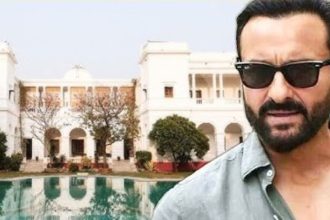“Mujh ko tahzib ki barzakh ka banaya waris, Jurm ye bhi mere ajdaad ke sar jayega [I was made heir to culture’s Purgatory, For this too, my ancestors will be held responsible].”
When Parveen Shakir was writing these words, little did she know a boy band from Karachi would make them their mantra. With the fourth episode out, it is safe to say the juggernaut is coming to a grinding halt. Even a blueberry ice cream fan would think twice about having the dessert every day. Expecting too much is the right of every Pakistani music aficionado since the show has overtaken every aspect of our industry, claiming to be the ‘Sound of the Nation’. Predictability has become key with Coke Studio. The hide and seek from yesteryears has become ‘open and no seek’. In the direction where it’s heading, the show has entered a dark alley.
Piya Dehkan Ko
We may be accused of reductionism, but the Freudian slip of ‘Bilal bhai’ from Ustad Hamid Ali Khan in one of the BTS cuts speaks a lot about the approach. Raag Bageshri encapsulates the longing of a woman to meet her love interest. Throughout the track, Piya Dehkan Ko, nobody dared overtake the Patiala scion’s effortless singing as Nafees Ahmed followed his footsteps like an obedient understudy. The track is clearly worth every second of the six or more minutes. It’s a pity that poor Momin is caught by the camera every single time with an inappropriate expression.
Ae Dil Kisi Ki Yaad Mein
The fourth installment of Season 8 was no different from the others. A luxuriance of roots coupled with divided musical brilliance. The flagship track from the episode was a cover of Saleem Raza’s Ae Dil Kisi Ki Yaad Mein. The song also marked Sara Haider’s elevation to centre stage accompanying Ali Zafar. Despite the distinct accent, she manages to draw attention towards her vocal abilities. Collaborations have helpedCoke Studio make things work and this was another duo whose chemistry clicked. The build-up to Momo’s moment and the verse was on point. The composition grows on the listener quickly and validates the song’s graphic autonomy. Was it worth the creative leap? To a great extent yes.
A performer of the ongoing season admitted he tried tooth and nail to keep the producers from regurgitating classics. “I told them time and again that we need to make original numbers to revitalise this industry but they were too focused on doing covers.” Furthermore, two of Pakistan’s most acclaimed guitarists also disclosed they were approached initially, but were soon refused on the pretext that, “we will be redoing music of the 80s.”
Khari Neem
Siege is a product of the turn taken by our music of the 90s. Despite failing at a major breakthrough, the band has still made waves throughout its prolonged career. The duo was tasked with a needless revisit of Mai Bhagi’s Khari Neem. Junaid Younus tries his best to add character to the hasty inclusion that makes little sense. The house band thoroughly enjoys the fun-to-play arrangement, leaving the judgment of perspective onto the shoulders of Bilal and Faisal.
Rabba Ho
Mulazim Hussain is perhaps one of the most promising finds of the recent past. His textured voice and vocal prowess reflect honesty peppered with exuberance. Rabba Ho is a rendition of a recallable composition made grand by Uncle Jay and Co on the strings section. The track lifts you up to a place where the petrichor is noticeable, the breeze is gutsy and the laughter of children is distinct as they play somewhere in the nearby fields.
Also read:New flower in the Coke Studio garden





